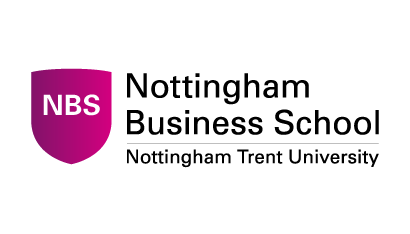Promoting gender equality for women in STEM
To mark International Women in Engineering Day, we explore why there is gender inequality in STEM industries and what more can be done to promote an equal workforce.

The working world is changing rapidly. Jobs are constantly evolving to keep up with the digital revolution, paving the way for new, exciting career opportunities.
The technical disciplines of science, technology, engineering, and mathematics (STEM) have experienced a surge in demand for talented individuals that have the necessary skills to thrive in these industries.
However, STEM industries still suffer from a gender imbalance, meaning that some members of society aren’t getting an equal slice of the pie. Alarmingly, women currently make up only 28% of the global workforce in STEM industries, which shows how much work still needs to be done to achieve equality.
To celebrate International Women in Engineering Day (23rd June), we’re exploring the problem surrounding gender equality in STEM, why it’s crucial for these industries to be more inclusive, and what more can be done to promote the importance of this transition.




Statistics about women in STEM
Across university courses and jobs, women continue to be underrepresented in STEM industries. The statistics about women in STEM that we highlight here reveal just how concerning the current imbalance is.
Women in STEM – student statistics
- Only 35% of STEM students in higher education in the UK are women.
- Subject breakdown for female representation: Engineering & Technology (19%), Computer Sciences (19%), Mathematical Sciences (37%), Physical Sciences (39%).
- Since 2015, the number of women graduating in STEM subjects grew from 22,020 to 24,705 in 2019. However, due to the number of men graduating, the overall percentage has only risen from 25% to 26%.
Women in STEM – working professional statistics
- In 2019, over 1,019,400 women worked in STEM occupations. However, this is still only 24% of the overall workforce.
- Industry breakdown for female representation: Engineering (10%), IT professionals (16%), IT technicians (21%), Science and engineering technicians (25%), Science (46%).
- In a recent report by STEM Women, 89% of respondents see diversity initiatives as extremely or very important.
- In the same study, 57% of respondents said they had suffered from or experienced imposter syndrome.
Source: STEM Women
Why is there gender inequality in STEM?
Despite steady progress, gender equality in STEM is still apparent for several reasons. Some of the main factors include:
- A lack of role models
- Persistent ill-informed stereotypes about women’s intellectual abilities
- Senior figures and HR departments that are male-dominated
- Lack of education about the diverse roles within STEM industries
- Cultures that tend to exclude women
- A wage gap
- Still a largely male-dominated culture
- Imposter syndrome is still present.
Unfortunately, the challenges of past generations can prove difficult to shrug off in STEM industries, and there are still several barriers that still need to be broken down.
It’s therefore up to current and future generations, both women and men, to persevere and disable these barriers to entry together. The opportunities for women in STEM are plentiful, so it’s all about making sure young women are aware of the options available to them and feel empowered to pursue a career in this field.
You can read our blog post about gender inequality and the role of feminism if you’d like to find out more about this topic.
Role models for women in STEM
When tackling why there are fewer women in STEM, it’s essential to increase the visibility of female role models across those industries. By shining a light on success stories and famous women in STEM, others may feel inspired to pursue a career in a STEM discipline.
Here are just a few of the incredible women that have helped to shape the world as we know it.
- Marie Curie. A physicist and chemist, Marie Curie pioneered research into radioactivity and was the first woman to receive the Nobel Prize.
- Katherine Johnson. She is a NASA mathematician whose calculations were pivotal to the success of the first and subsequent U.S. crewed space flights.
- Mayim Bialik. Known for her role as Amy Farrah Fowler in The Big Bang Theory, Mayim Bialik has a PhD in neuroscience from UCLA. She works hard to get more girls into science and often discusses the importance of STEM careers and research.
- Marissa Mayer. After spending a decade at Google, Marissa Mayer was appointed president and CEO of Yahoo. In doing so, she became one of 20 women running a Fortune 500 company (2019).
- Flossie Wong-Staal. A pioneering former NIH scientist, Flossie Wong-Staal was instrumental in the discovery of HIV and the first to clone the virus and determine the function of its genes.
- Rosalind Franklin. Best known for her work on DNA as a leading scientist, Rosalind Franklin discovered the molecular structure of DNA.
- Brittany Wenger. She created an AI software called Cloud4Cancer that detects and diagnoses breast cancer through noninvasive measures. Her breast cancer app has now been beta-tested with two cancer research centres.
- Tarika Barrett. As the CEO of Girls Who Code, Tarika Barrett created an organisation with the aim of closing gender gaps in the technology industry. In 2021, she was named one of Crain’s 50 Most Powerful Women.
- Valentina Muñoz Rabanal. An influencer, youth feminist activist, and digital rights advocate, Valentina was recognised as the youngest programmer to contribute to the construction of the Artificial Intelligence Policy in Chile. She is also President of the Latin American Association of Young Women for Ideas.




What more can be done to improve gender equality in STEM?
When shaping the future for STEM industries, it’s important that nobody gets left behind. Collectively, STEM organisations need to promote gender equality in business, culture, government, and legislation, in order to help drive this movement towards inclusivity.
1. Attract and retain more women
Improving the amount of women in STEM has been slow to date and there is still more that can be achieved in this endeavour. STEM businesses need to prioritise attracting and retaining more women in order to make the workplace more gender equal.
Industry leaders need to start shouting from the rooftops about how great STEM industries are, as well as driving better marketing and advertising campaigns to help promote the diverse range of jobs. This includes making sure that women already in STEM-related roles have a reason to stay in the field and not look for jobs elsewhere.
When this is achieved, businesses, and consumers of their products, will benefit from a more diverse workforce. This is because the best skills and knowledge in the industry will be utilised, ensuring people are selected for roles based on their attributes, rather than their gender.
The positive impact diversity can have on business success is well documented, with businesses that are recognised as more diverse and inclusive outperforming their competitors by 35%.
2. Break down stereotypes
There are still some outdated stereotypes that exist with regard to education and the capability of women to work in STEM industries.
In terms of education, it’s not unusual for people to think that STEM industries are still better suited to boys, adhering to old-school stereotypical gender roles. When this attitude persists in a particular industry, it’s not always easy for girls to feel confident enough to pursue a career within that specific profession.
This is especially true when this mentality also exists in the workplace – some people are still guilty of thinking women are less capable of fulfilling roles in STEM industries successfully.
Open days in school, inspiring female guest speakers, networking events, and social media campaigns are all great ways of reaching out to young people and making sure professionals working in STEM debunk the myths surrounding the profession.
Check out our full range of STEM teaching courses here.
3. Improve workplace culture and conditions
In order to achieve the first two points made in this section, it’s important that STEM businesses get the workplace culture and conditions right. Whether it’s because of hostile environments, wage gaps, lack of career progression, or minimal support, there are still many reasons why women may not be attracted to what’s currently on offer.
Everyone in a workplace environment, from the top level to the bottom, needs to come together to make working environments more pleasurable and accommodating for all genders. Once this has been accomplished, you’re likely to see more women in STEM industries taking on leadership positions.
Kickstart your STEM career with FutureLearn
While work is being done to improve gender equality in STEM industries, there is clearly a lot more that can still be done. More women need to be at the forefront of the STEM revolution we are experiencing and there is no doubt that increased involvement will lead to success across all disciplines.
If you’re a woman who wants to learn more about careers in STEM and learn some new skills, we have an excellent range of online courses in science, maths, coding, cybersecurity, engineering and more.
We’ll list some of our best introductory courses below. Invest in your future and help create a better working environment for all today.
- Chemical Engineering: Shaping a Sustainable Future by the University of Leeds
- Ecology and Wildlife Conservation by the University of Leeds
- Data Analysis with Excel for Complete Beginners by CloudSwyft, accredited by Microsoft
- Biochemistry: the Molecules of Life by the University of East Anglia
- Life on Mars, Earth and Beyond with Dr Louisa Preston by FutureLearn
- Prepare for a Software Development Career by FutureLearn
- Introduction to Food Science by EIT Food
- Fundamentals of Economics by Sentinel|9
- Mathematics for Computer Science: Essential Skills by the University of Hull.




